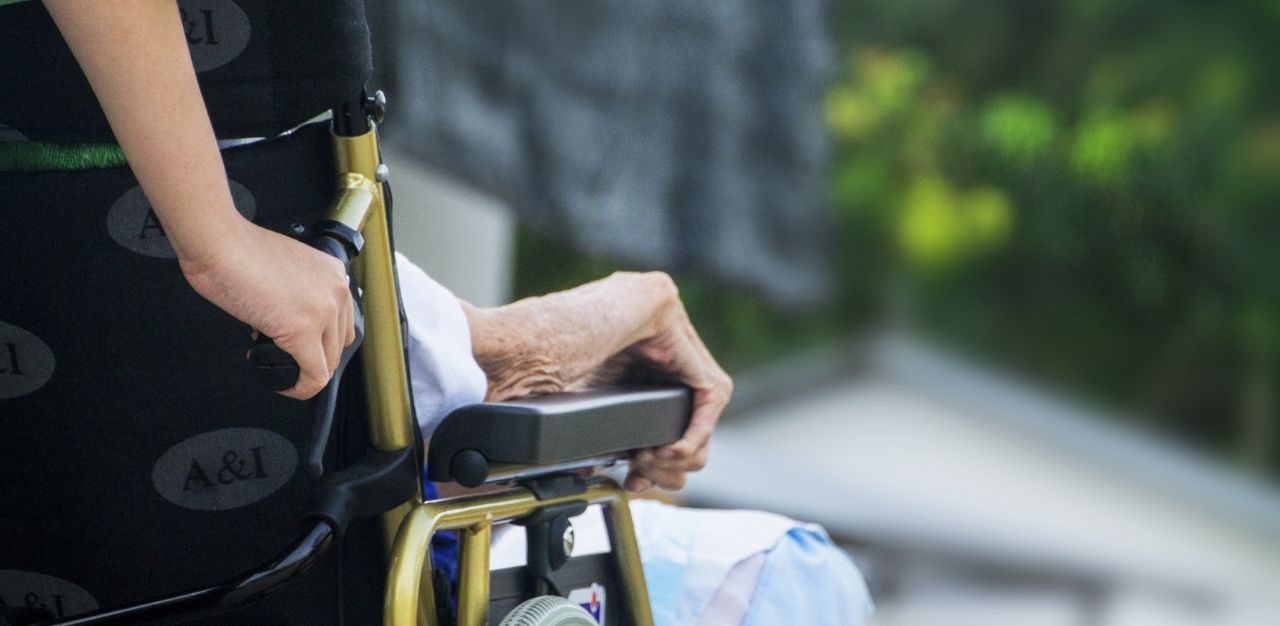In recent years, more programmes and resources have been established to meet the needs of Singapore’s ageing population. These include the Senior Priority Scheme, which improves an individual’s chance of getting a flat, as well as the Silver Support Scheme, which offers quarterly cash payouts to seniors with low lifetime wages and little or no family support.
However, ageing can be a trickier process for the queer community, as they face elder care options that may not be accepting of their gender identity and sexual orientation. What are some unique challenges that LGBTQ+ individuals encounter in the process of ageing? TheHomeGround Asia finds out.
With Singapore’s total fertility rate declining over the past decades, and falling to a historic low of 1.1 in 2020, decreasing birth rates coupled with a high life expectancy have led to Singapore facing an ageing population.
But, despite a host of initiatives designed to cater to the needs of the elderly in Singapore, one group has fallen through the cracks – the queer community. In their later years, many who identify as LGBTQ+ face multiple hurdles, be it through housing policies or medical ones, to the more personal, such as being unable to find acceptance and facing discrimination.
The use of language in self-identification
Leow Yangfa, Executive Director of Oogachaga, a non-profit that aids the LGBTQ+ community through the provision of counselling and support services, says older LGBTQ+ individuals may identify themselves using different characteristics, unlike younger individuals who are “comfortable” using the terminology of LGBTQ+ to describe themselves. He asserts that this may lead to implications of how people “address, define, work with and support LGBTQ+ elders.”
For instance, an older male who is “effeminate in their gender expression, and attracted to other men,” says Mr Leow, may “interchangeably see himself as a gay man or trans woman.” The person may use both male or female pronouns (he or she) when referring to themselves, and may not mind being called by ‘uncle’ or ‘aunty’.
He adds, “Likewise, an older woman who is somewhat masculine-presenting, not in a relationship with anyone but maybe previously attracted to women, may or may not see herself as a butch, lesbian or tomboy.”
In contrast, he states that more contemporary terms used for self-reference within the LGBTQ+ community include ‘lesbian’, ‘gay’, ‘bisexual’, ‘transgender’, ‘queer’ and ‘nonbinary’.
Mr Leow also explains that some of the terms used by elderly LGBTQ+ individuals, such as ‘homosexual’, ‘transsexual’, or even ‘ah kua’, refers to a transgender person in Hokkien, may be considered outdated or potentially offensive to those who are more modern.
According to the GLAAD institute, the term ‘homosexual’ is perceived to be offensive due to its clinical history, as it suggests that people who are attracted to the same sex are ‘somehow diseased or psychologically/emotionally disordered’. While the term ‘transsexual’ is not considered an umbrella term, as many transgender people, whose gender identity differs from what they were assigned at birth, do not identify as transsexual.
Social isolation among the elderly
Social isolation is also common within the queer elderly community.
According to June Chua, co-founder of The T Project, isolating themselves is sometimes a coping mechanism for senior members of the transgender population to avoid challenges. Founded in 2014, The T Project runs Singapore’s only shelter for transgender people and supports the community through outreach, counselling and advocacy.
“They never go out. [The] T Project sends food donations to the elderly transgender community, from what I see, they all stay at home, don’t have [handphones]. They watch TV, listen to radio,” she says.
This happens to many queer elderly individuals as well.
Retired general practitioner and LGBTQ+ activist Dr Roy Tan, who has been instrumental in documenting Singapore’s LGBT culture and history, says that many older LGBTQ+ individuals remain closeted, even to other queer people.
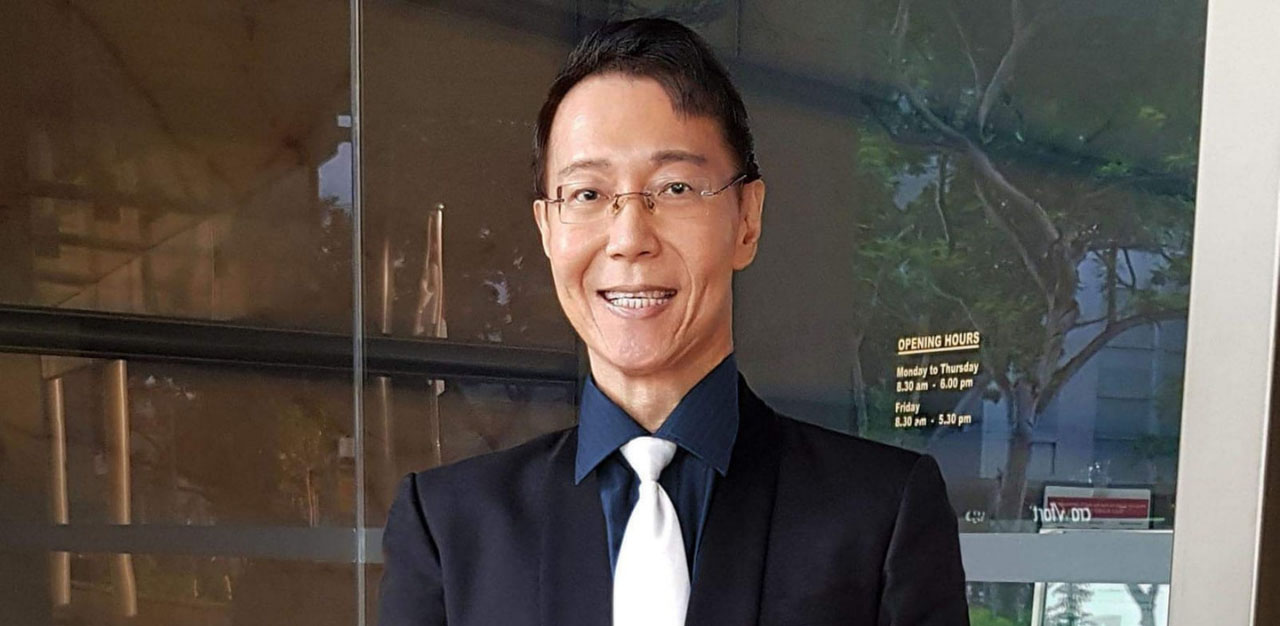
Dr Tan started a group, Volunteer Befriending and Helping Service, to help meet the needs of queer elderly people, from physical to monetary assistance. But, his enquiries regarding elderly queer people in need of help met with little success, as many have not come out gay or lesbian.
“So you see, the amount of shame that’s associated with being gay is also very hindering [when it comes] to reaching out to people.”
Other factors, such as a lack of contact with or rejection by family members, the deaths of parents, siblings and friends over time, can further push LGBTQ+ elderly into living in solitude, says Mr Leow.
“Some may [be] unable or not ready to connect socially with younger generations for various reasons, and have difficulty seeking LGBT+ [or] non-LGBT+ peers their own age,” he shares, adding that being alone might prevent them from meeting their social and sexual needs.
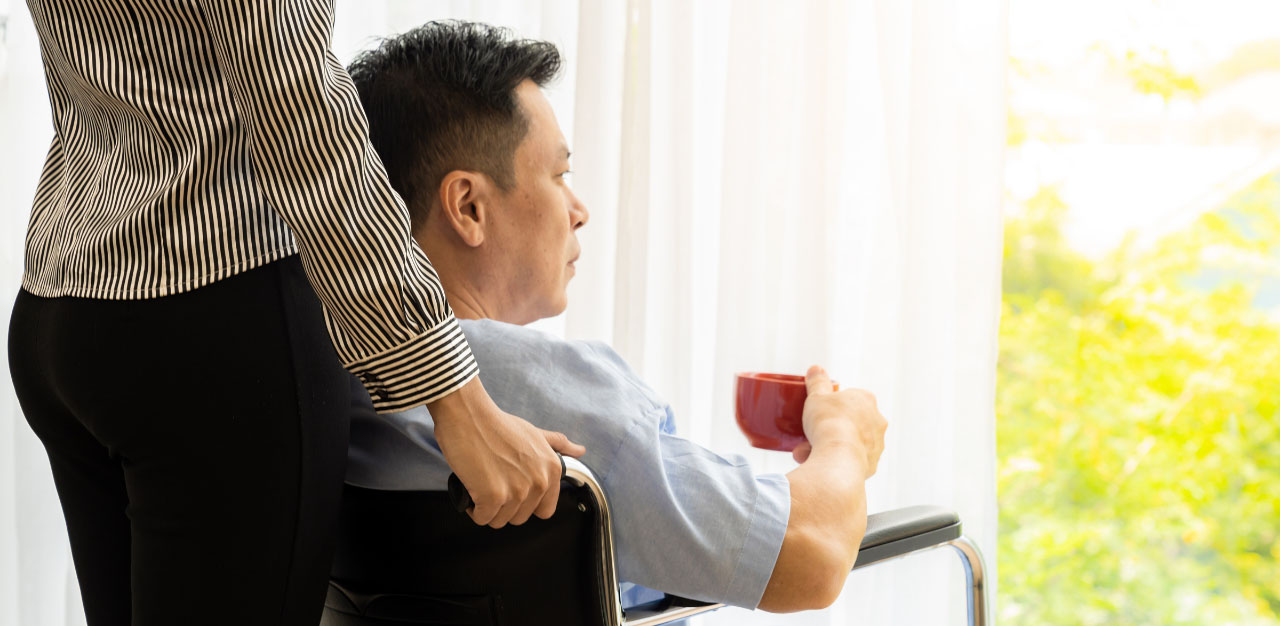
Going back into the closet
Gender identity aside, ageing in a nursing home can be difficult to adjust to. A person might not be able to enjoy the same lifestyle choices and freedom in their daily routine.
Ms Chua shares her earlier experiences as a volunteer in an old folks’ home: “I hadn’t started The T Project yet. It’s so horrible… [when they] give haircuts, it’s like [a] factory; one by one, they [are] rolled out. No options, all short hair.”
Queer individuals living in nursing homes face an additional challenge: Having to go back into the closet, if they cannot be open about their gender identity. Uncongenial social environments, such as homophobic attitudes and behaviour from fellow residents in the nursing home or even staff members, are further reasons for making this decision.
Says Mr Leow, “It is not unusual that some LGBTQ+ elders, for their own social and emotional safety, decide to go back into the closet as they become older.”
Dr Tan shares that there is a real fear of dealing with abusive and homophobic behaviour, especially if they cannot afford to hire elder care alternatives such as private nurses, and are sent to public nursing homes that tend to cater to heterosexual individuals’ needs.
Living in a nursing or aged home could also mean not being able to receive visitors.
“[Some] have no friends, and [others are] afraid that friends will come and give the game away. After all, friends come and talk about [LGBT-related issues], everyone’s gonna know that [they] are gay,” he says.
For those in the transgender community, however, stepping back into the closet is not an option, says Ms Chua.
“For gay, lesbian, bisexual [people], the last resort is to go back to the closet, so they can enjoy the benefits of what cisgender [a person whose gender identity is aligned with the sex they were assigned at birth] elderly enjoy. Just go back to the closet, be a cisgender, heteronormative man or woman. But… for transgender persons, [that’s not possible],” she explains, citing the example of transgender females who already present feminine traits physically.
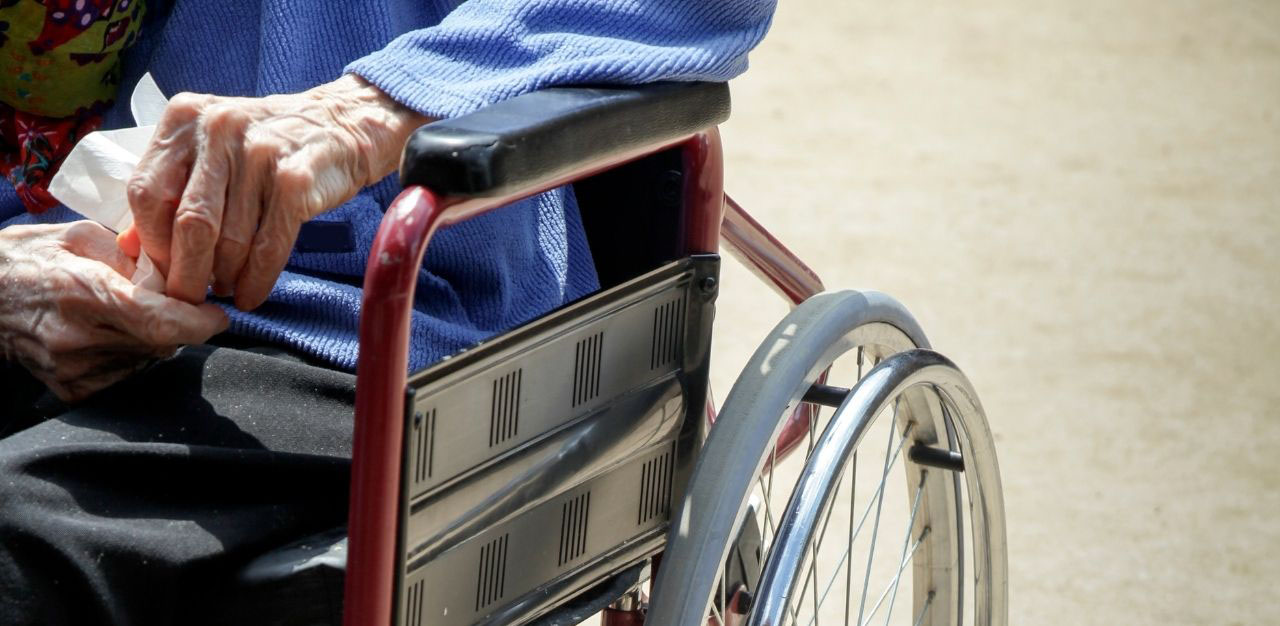
The struggles of the transgender community
When it comes to legally changing one’s sex, Singapore is among a handful of Asian countries that recognises transgender people. Since 1973, sex reassignment surgery has been legal, and those who have undergone the procedure can change their gender marker on their identification cards. But the birth certificate cannot be altered, as according to some sources, it is considered a historical document.
Hence, Ms Chua says that if a nursing home requires a potential client’s birth certificate when applying for a place, this might present an issue of whether a post-operative transgender person will be assigned to a male or female room, if this is determined by the gender identity indicated on the birth certificate.
She says, “[Transgender individuals] may be already presenting as females [with physical traits such as] long hair and [larger] breasts. But their gender marker [on their birth certificates] is male, so they’re sent to a male nursing home.”
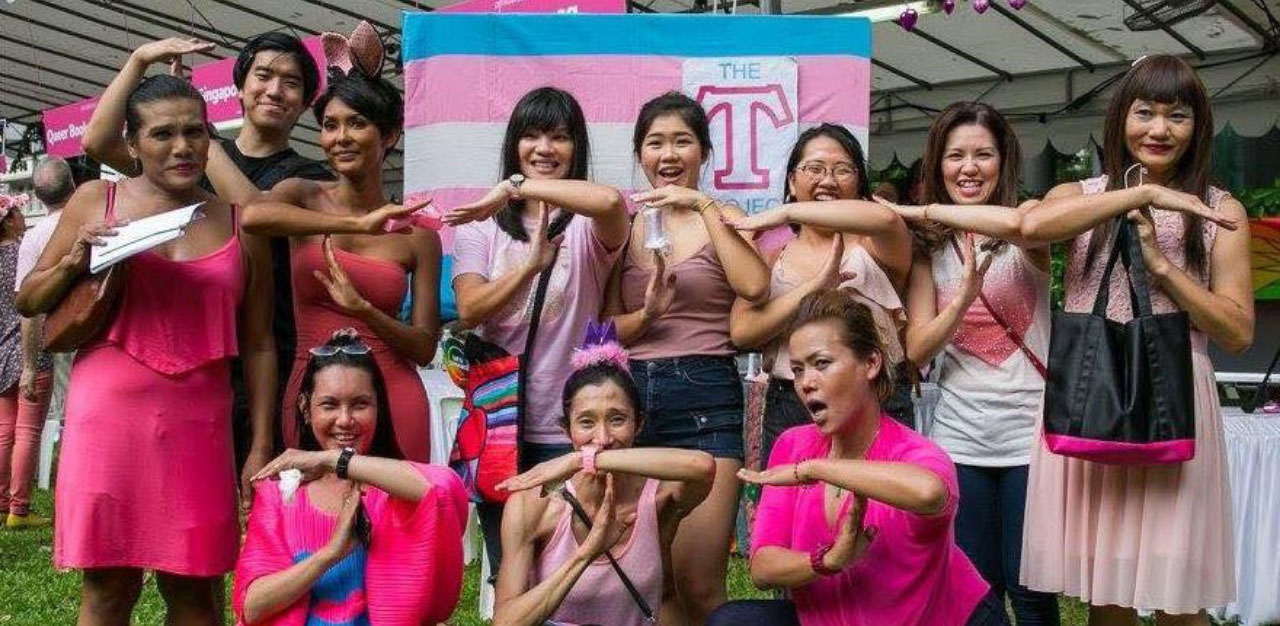
Access to insurance coverage is another issue.
Many transgender individuals are current or former sex workers, explains Ms Chua, and do not have savings under the Central Provident Fund programme. Some hold low-wage jobs, and many are now receiving financial assistance, leading to many not having the means to afford insurance.
“So if you are lower-income, the group that needs insurance the most, [if you] cannot pay, [you] cannot get it,” she says, adding that those who can afford it have to fork out for higher premiums.
Aside from affordability, many transgender individuals also encounter limitations in terms of insurance coverage, whether they are pre-operative or post-operative.
Dave* (not his real name), a transgender male person, says that purchasing insurance plans can be difficult, sharing his experience when he tried to purchase a new insurance plan.
“I got caught up in the underwriting phase because I had to declare that I have a medical condition, and that I will be undergoing surgery in [perhaps] the next few years. And anything related to the surgery, to my former [and] new genital tract, will not be covered under insurance,” he notes.
He questions where he fits in when it comes to coverage, and whether he would still receive coverage as a woman even if the gender marker on his IC indicates that he is a man.
“Rationally speaking, the [plan] for a cisgender woman would not cover prostate cancer, [and] that for a [cisgender] male, would not cover breast cancer. But I am at risk of breast cancer, [and] I will not have prostate cancer.”
Dave also claims that undergoing hormone therapy is recognised as a pre-existing medical condition, hence any possible side effects of the treatment – including cancer, heart attack, and stroke – are not covered under an insurance plan, as well.
Financial advisor Wayne (not his real name) clarifies that a hospitalisation and surgical insurance plan covers one’s hospitalisation and surgical fees, and although it excludes an initial sex change operation, it does not explicitly exclude complications at a later stage.
He adds that the approval of an insurance policy depends on an underwriter evaluating and assessing the risk of insuring an individual.
“If the underwriter deems the applicant to be too high risk, he or she will reject the application, or use ‘exclusions’ to manage the risk. This is a case-by-case situation and is not set in stone,” he explains.
“Underwriters use this exclusion method so ‘higher risk’ individuals can still be covered for everything else, as opposed to not being covered at all.”
Financial limitations
Private nursing can be expensive, limiting it to those who are more financially secure and can afford to pay for it.
A quick search reveals that private nursing care in Singapore can cost between S$1,200 and S$3,500 (US$905 – US$2,640) per month, prior to a subsidy provided by the Ministry of Health. Two types of nursing homes are available: Private nursing and those run by voluntary welfare organisations.
Subsidies are also available, subject to applicants meeting the criteria, which takes a few factors into account, such as the number of family members within the same household, the annual value of their current place of residence, and the gross income of the person who requires care, as well as that of their direct family.
While financial limitations affect anyone looking for nursing care, regardless of their gender identity, Ms Chua explains that transgender people who have low to no income have no option save for public nursing homes, since they receive little to no support from their families, and rely on financial aid from the Government.
She shares, “They don’t have money to pay for insurance; they live day-by-day. They must [hope] that they don’t get a stroke, they don’t get [into] an accident. If their mobility is affected, it’s straight to a nursing home. That’s the only option for them: State-funded nursing homes.”
This is the first in a two-part series on ageing within the LGBTQ+ community in Singapore. Look out for the second instalment, when we explore further the social implications and challenges of aging for queer people.
Join the conversations on THG’s Facebook and Instagram, and get the latest updates via Telegram.
